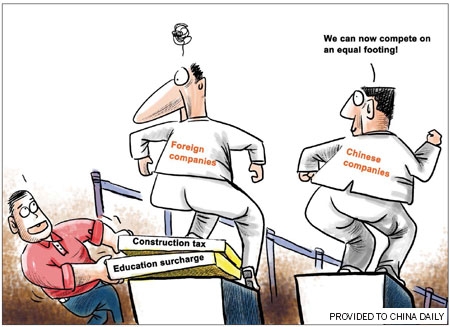Japan's corporate bankruptcies down for 16 months
Updated: 2010-12-08 17:14
(Xinhua)
TOKYO - The number of corporate bankruptcies in Japan declined for the 16th successive month on year in November, due to government credit guarantees for small and medium-sized firms stimulating loan guarantees and easing cash flow problems, Tokyo Shoko Research said in a report on Wednesday.
| ||||
Outstanding debts left by the failed firms in the recording month fell 60.5 percent to 273.8 billion yen, marking the first decline in three months due to no occurrences of major bankruptcies involving debts in excess of 100 billion yen ($1.19 billion), the research firm said.
The monthly report showed that of the 10 industries surveyed, seven sectors saw corporate failures decrease. However, the wholesale and the information and communication industries logged more bankruptcies than a year earlier and the construction sector showed the highest number of bankruptcies with 275 cases.
Tokyo Shoko counts as bankrupt companies with more than 10 million yen ($119,350) or more in debts and firms suspended from conducting bank transactions.
The research firm cited the yen's continued strength against the US dollar as a major cause of firms' failures, particularly those reliant on earnings made abroad and previously stated that between January and October the number of business failures due to the yen's strength had tripled from 19 failures a year earlier to 58.
Paper's Digest

Xi'an – more than just clay soldiers
There is more to the ancient capital of Xi'an than just clay soldiers.
Preview of the coming issue
Showing face: Looks can kill
China fueling European recovery
Specials

The naked truth about nude art
A growing number of Chinese people are now choosing to go nude for posterity, particularly young women and new brides.

"China lover"
Lord Mandelson says he has been called a "China lover" as a term of abuse back in Europe.

Firms unfazed by new taxes
Foreign investments into China are not expected to be adversely affected by the cancellation of some of the country's preferential tax policies.



